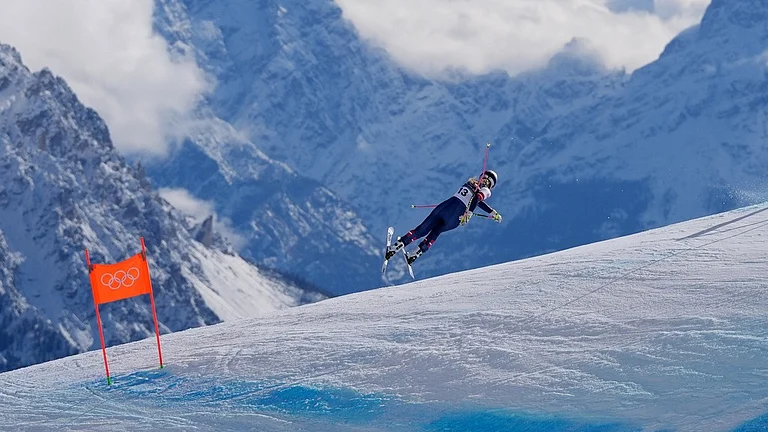You'll be amazed," says H.C. Gandhi, secretary of the War Widows Association. "The number of problems these war widows and wounded soldiers, especially of the 1965 and 1971 wars, face is tremendous. Most of the promises of land and housing have not been kept."
This, when infinite examples of individual and collective gallantry embellish the annals of the Indian army. The soldier has fought with distinction wherever his mission has taken him-whether to the freezing slopes of Kargil, the treacherous terrain of Nam Ka Chu against the Chinese or the killing fields of the Fazilka sector.
The Indian jawan stays unique in his ability to make do with less, sometimes nothing. He loves his job, his regiment, his officers, his colours and the colours his predecessors served before him. He sometimes complains, but then puts the adversity behind him. Even during war, when he may have no food in his belly, no coat on his back or shoes on his feet. "When I was holding on to a post in Daulatbag in Ladakh during the '62 war," recalls Havaldar Krishan Pal Singh, "I lost my shoe and had to be in this state for several days in sub-zero temperatures," But, adds he, "Give me half a chance, and I'll go back to fight in Kargil."
One would expect these acts of sustained courage and fortitude to be rewarded suitably. Not so. The jawan or sepoy, after his innings with the army, is a forgotten man. Living, if lucky, on a pitiful pension, with little or no support from the government. The war disabled may claim a shoddy rehabilitation package, but it's after years of badgering and bad treatment meted out to them. For instance, Lance Naik Chattar Singh of Bulandshahr, who is now blind and lost both his legs and an arm in the Mukti Vahini combat, used to receive a disability pension of Rs 750 till recently. It has been revised now-by a pitiable Rs 250.
Another immobilised jawan, till the Fifth Pay Commission, used to receive Rs 300 as Constant Attendance Allowance. Now it has gone up by Rs 450. "It is still impractical, inhuman and unthinkable," thunders Brig S.P. Sibal (retd), who is an advisor to the defence chiefs and is fighting for an increase in the pensions for ex-servicemen. The plight of the jawan's widow is worse. "I just plead with the defence establishment on behalf of disabled soldiers to be treated with dignity. We have no savings and are at their mercy," says S. Thomas, 54, of the Engineering Regiment. The '71 war had claimed his eyesight.
And while the fighting in Kargil has elicited a shrill groundswell of support, with countless donation banks and lucrative compensatory packages being announced by state governments, the dead and the wounded will soon be erased from public memory as has happened with those who fought the '71 war.
"During '71, the jawans had none of these, they were badly off and had to run from pillar to post to get their dues," says Major Dalbir Singh who was with the Gorkha Rifles in '71. A high-ranking serving general agrees. "There was no gratuity, no ex-gratia and no army group insurance, just the normal meagre pension. You did not have a Rabri Devi or an Ashok Gehlot announcing Rs 5 lakh packages."
And callousness reigns supreme. A Vir Chakra awardee, Kunwar Singh Chaudhuri of the 5th Garhwal regiment, when he went up to the Zilla Sainik Board for more assistance, was told: "Aap thhe bali ke bakre, Id bhi khatam aap ka naam bhi khatam (you were a sacrificial goat, Id is over, so is your name). Having lost a leg while posted at Hilli near Hanshimara in Bangladesh, he managed to get a quarter allotted in Lucknow after a chance encounter with Indira Gandhi.
"Let's face it. The jawan gets a raw deal. Officers who were also wounded in war managed to get licences for petrol pumps, gas agencies and land allocated whose market value now is crores of rupees," says an official in the Directorate of Resettlement. And notwithstanding the schemes on paper for the rehabilitation of the jawans, only a fraction find themselves a vocation. "It's tough and they are not assured jobs for their children," says Major K. Arora, a war veteran. "Yet, all of us claim they are heroes."
That they are. Despite all odds, they lumber on in the battle of life, hugging memories of wars they've fought for the sake of the country. Patriotism is all they know. It's their final and only geography.
with A.S. Panneerselvan, Ashis K. Biswas, Manu Joseph, Amarnath Tewari in Patna and Sutapa Mukerjee in Lucknow


























